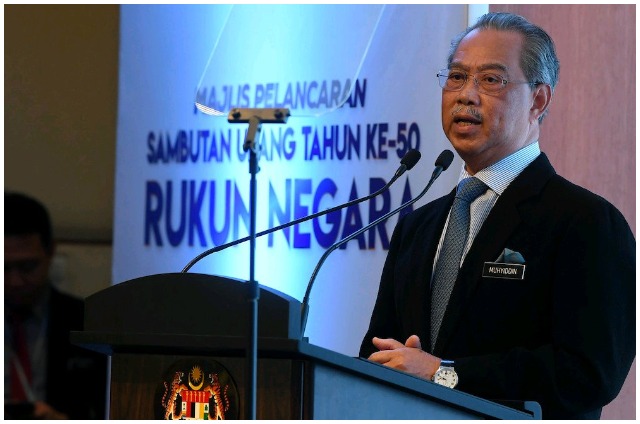

In recognising that Malaysia has people of many faiths, the Rukun Negara’s first principle of ‘Belief in God’ was accorded priority when the national ideology was introduced on Aug 31, 1970, thus securing religious freedom for the common good and to establish a sovereign nation.
Although the Federal Constitution states that Islam is the religion of the Federation, other religions can be practised peacefully anywhere in the country to preserve unity among Malaysians.
Minister in the Prime Minister’s Department (Religious Affairs), Datuk Seri Dr Zulkifli Mohamad Al-Bakri, said Malaysia’s harmonious society reflects this principle.
“Humans inevitably seek God, desire the truth and to do good. Faith offers direction, imposes limits and creates awareness of what God loves and detests in human conduct.
“Indirectly it influences a person to be considerate, avoid evil and think wisely,” he told Bernama ahead of the July 7 Rukun Negara 50th anniversary celebration in conjunction with the Merdeka Month and National Day 2020.
The Rukun Negara, which comprises five principles altogether, was launched to restore and strengthen racial harmony following the May 13, 1969 riots. Its four other principles are Loyalty to King and Country, Supremacy of the Constitution, Rules of Law, and Courtesy and Morality.
Zulkifli said the principle of Belief in God has helped form a chain of love which, combined with the strength of multiculturalism, has helped the country become successful and more competitive.
“I am confident and believe that if the awareness about Rukun Negara is being inculcated among the people right from the start, with the young ones in school, those five principles could become a way of life,” he said.
On the rise of social media and challenges to religious belief, Zulkifli said that all quarters should come together to find a suitable solution without forcing anyone to accept any particular religion.
Meanwhile, Malaysia Hindu Sangam president Datuk R.S. Mohan Shan said moral values arise from the principle of Belief in God, and that people, especially the young generation, should use the credo to guide them through the challenges faced with social media which can impact their belief, identity and behaviour.
“Religion doesn’t teach us to insult other religions for personal advantage,” he said while expressing hope that the Rukun Negara anniversary celebration will further strengthen the ties among the people in this multi-religious country.
Malaysian Gurdwaras Council president Sardar Jagir Singh said everyone should reflect on the significance of the Rukun Negara that was created to promote peace and harmony in Malaysia.
With the rapid development of information communications and technology, he said social media platform should be fully utilised to remind the people of its objective and goals.
“When I was in school, we learnt the Rukun Negara by heart from books, embracing its principles. In this era of technology and social media, it should be easier and shouldn’t be too much of a problem,” he said.
Buddhist Missionary Society Malaysia president, Loh Pai Ling, also agreed that the Belief in God principle was important and should be inculcated among the people.
“There are enough similarities between the religions in Malaysia for all of us to come together to promote understanding to achieve peaceful co-existence,” she explained.
Loh said multicultural unity is evident in Malaysia and that people should understand that religion exists for the good of all, must be rid of fanaticism and should not be abused for personal gain or glory.
“So as true believers, let’s join hands to stop controversy and discrimination in our religious teachings, and do our best to promote interreligious harmony for peace, security and stability,” she added.
— BERNAMA










